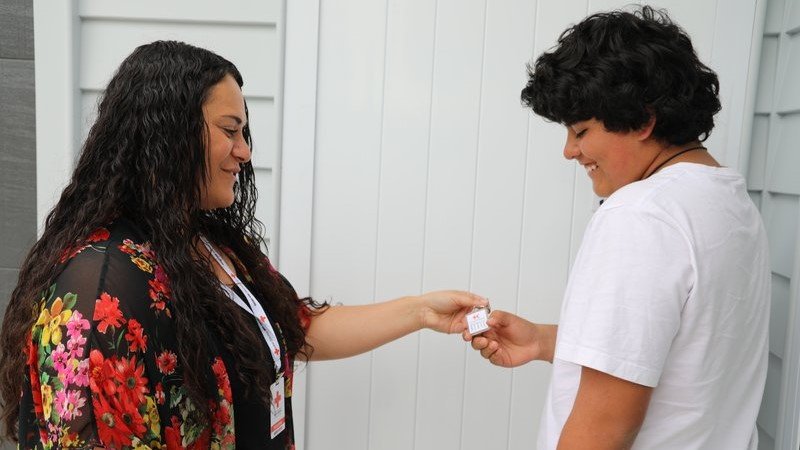Resettling Former Refugees
Hot on the heels of refugee Sunday, we talked to Jake Smythe from Red Cross about his role in the former refugee resettlement programme.
Jake has spent the past 5 ½ years working with former refugees and vulnerable migrants in the Migration Programme at the Red Cross. A significant part of this has been working in partnership with both us and the Catholic diocese to set up homes for former refugees.
Jake trains volunteers and places them with families where they will provide support as they settle into life in the Wellington region. The volunteers work with the families for six months (officially, but hopefully they build a relationship that lasts longer) and help them navigate the new culture and new ways of thinking about life; finding a GP, setting up accounts with utility providers, settling into school, how everyday kiwi live – many things we take for granted. They arrive in Aotearoa New Zealand with worries about other family and friends left overseas who were not able to travel in initial migration; often their family members are in precarious situations or war zones. “These people, like us, have aspirations for their kids to be well educated and have fulfilling lives, they are keen to learn English and find jobs. We help them navigate that in a new environment,” said Jake.
Jake also works closely with us and refers to the long-standing partnership between the three organisations (us, the Catholics and the Red Cross) as ‘fundamental’. “There is a strong culture of manaakitanga, of being receptive and welcoming to manuhiri. The value added to the resettlement process is inestimable and not easily replicated elsewhere. It’s exemplified with food and the welcoming environment created in the home. These people have lost their community and a place of belonging, so having a warm and welcoming household goes some way to alleviate that.
“It's a really key role that the diocese plays in the resettlement process. Taking a house that has bare bones and turning it into a fully set up, welcoming home,” says Jake. “It may not seem like much to us but moving into a house that has a fully stocked pantry, linen, books and toys for the children, and some of the mod-cons like a microwave or rice cooker makes that house feel like a home. It provides a very thorough welcome into our community.”
Finding housing is a consistent challenge as our former refugee families are competing on same housing market as everyone else. There is a huge amount of pressure on social housing with the very immediate needs of the homeless and people living in cars. This means many of our families are moving into private rentals with the high rents and difficult circumstances that other people on the poverty line are also facing. Gone are the days when we had plenty of lead time to set up a house – we now need to be ready to go at a moment’s notice.
This week we are setting up four households for former refugee families and have six more that we need to set up in the next couple of weeks. We are in desperate need of household goods and teams that can do house set-ups. We are also keen to rent a storage container so we can store household goods to be ready when they are needed.
Re-homing former refugees is a huge task, so a huge to all those people and parishes involved!
How might I respond?
Talk to your parish leader about joining a team, or setting up a new team to help collect or sort goods, or set up a house.
Apply for one of the volunteer coordinator roles:
You can bring donated goods direct to the Anglican Centre if you are not involved in a parish that is collecting goods.
Consider volunteering with the families. (See Madeleine’s story about her time as a Refugee Support Volunteer)
Consider contributing financially to ongoing hire of a storage container.
Get in touch with Gendy (027 250 9664) if you have any questions or want to help fund a storage container.





